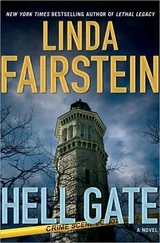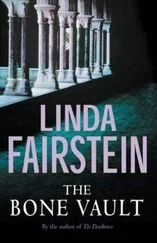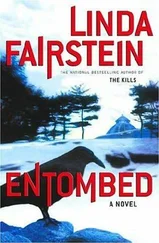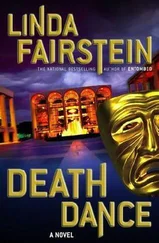Neither of us responded to his statement.
“I take it the peace offering didn’t go very well, did it?”
“Varelli was furious.” Mattox seemed to be open with us, having convinced himself that Varelli had told the story of the encounter to his wife. I guessed that he did not even recall that the soft-spoken young apprentice, Don Cannon, had been in the room when the beads were presented. “He assumed that the amber was part of Lowell’s secret cache of looted Nazi riches. The old guy didn’t even want to hold the necklace in his hands.”
“Isn’t that the truth, though? Isn’t that the source of the amber?”
“Hardly, Mr. Chapman. All of us who’ve been looking for the Amber Room have combed the Baltic coast for years. In Lowell’s case, for half a century, if you can imagine that. We’ve each come back with bits and pieces-the area is rich with amber. There are places along the coast where you can pick up chunks of it right on the beach. But no one really knows whether the great room was destroyed in some wartime bombing or is buried in one of the quarries that treasure seekers are constantly drilling.”
“How about the rumors that Lowell Caxton has smuggled half the remains out of Europe and re-created the palace room in some hideaway in the Pennsylvania countryside?”
“And that’s why I had latched on to Mrs. Caxton, Mr. Chapman? I’ve heard that one, too. If you could have seen Deni throw back her head and roar at those stories-and the nonsense that she and Lowell had used this mini Amber Room for their trysts-well, then you would have seen the woman I adored. She liked to fuel those absurd tales when she heard they were circulating. The more bold and bizarre, the more it pleased her. She loved outrage, Detective, and if she was at the center of it she loved it even more.”
“Were those the only jewels from Lowell that Deni wanted to give away?” I asked, referring to the amber beads.
“Lowell?” Mattox said with some surprise. “I don’t think she was parting with anything he gave her. His gifts to her were pretty substantial.”
“Then why the amber?”
“Those pieces weren’t from Lowell.”
I was sure Don Cannon had repeated that as part of Deni’s explanation when she tried to hand Varelli the necklace.
Mattox thought for a moment. “You know, you’re right, though. She told Marco they had been given to her by Lowell.” Now he looked up at me. “But you see, that was part of the game she liked to play. By implication she’d let people assume they were part of Lowell’s collection. Knowing Deni, she thought it would titillate old Marco to think there really was an Amber Room and that she and Lowell had cavorted in it. She and Varelli may have talked about it on other occasions-I simply don’t know that.”
“But she wouldn’t take anything fake to give Varelli,” I said. “I realize that his specialty was paint and artworks, but he had such a great eye. People tell us he had a unique sense of touch, and could identify the age of artworks so precisely. She wouldn’t pass off something to him as an antique or a valuable if she was trying to appease him, would she?”
“The necklace and figurine were genuine, Miss Cooper. Very old and very fine amber. The Baltic region is full of great pieces. It’s just that these things had absolutely nothing to do with the mysterious Russian palace and its amber. Deni may have tried to create that impression, but she knew damn well where the pieces came from.”
“And what was that?” Chapman asked.
“The necklace had been commissioned by King Wilhelm of Prussia for his queen. And the figurine as well. Sold at auction in Geneva several years ago. Can’t remember the price they brought, but it was quite high.”
“And Lowell bought them for Deni?”
“No, no.” Mattox seemed bothered that we hadn’t followed his point. “Deni only said she had gotten them from Lowell. Actually, they were a gift to her from a friend.”
“You know who he was?” “
She, Detective. From a woman called Marina Sette.”
“Pretty nice stocking stuffer,” Mike said.
It seemed even more curious that Deni would relinquish something that her closest friend had given to her. I still had every note card and silly souvenir that Nina or Joan had ever sent me, not to mention the more serious gifts. “But why would she get rid of something so precious, from someone she liked so much?”
Preston Mattox looked at me with a curious glance. “Liked so much? They hadn’t talked to each other in a long time.”
Chapman spoke before I did. “I thought they were best pals.”
“I don’t know what gave you that idea. They used to be quite close, but they had a terrible falling-out this spring. I don’t think Deni had returned Marina’s calls in months.”
“What was that about, do you know?”
“The only person who thought she had a greater entitlement to Lowell Caxton’s fortune than Denise did was Marina Sette. Deni came to believe that the primary reason Marina had befriended her in the first place was to work herself back into the inheritance-the fortune that would have been Marina’s had her mother not abandoned her when she married Lowell. There was nothing logical about Marina’s position. I doubt she has a leg to stand on in a court of law. But I think it was more of an emotional attempt to regain some connection to the mother she never knew, by claiming that she had a right to some of the masterpieces acquired during the period her mother was married to Lowell Caxton.”
“Seems to me there was more than enough money to go around,” Chapman murmured.
“But they’d never argued about that before?” I asked.
“It never was an issue with Deni before this spring. But then, once she suspected that Marina Sette had been sleeping with Frank Wrenley, it became more than an issue. It was the end of the friendship. The worm turned.”
Mercer Wallace lifted his head off the pile of pillows as we entered the room and gave us a weak but warm greeting. The nurse who helped feed him his dinner-still a liquid diet-was moving the tray off the bedside table as we settled in around the patient.
Chapman grabbed the television remote control panel dangling from a cord on Mercer’s bed railing and pointed it at the small set that was hanging from a support in the corner.
“Too early,” Mercer said, laughing. It was only six thirty-five, and he thought that Mike was looking for the Jeopardy! channel. “Let me hear what’s going on.”
Mike kept clicking until the screen was set on NBC and the national news report. “Don’t you want to see Cooper’s guy? Has he got a live shoot tonight, kid? Whoops, looks like Brian Williams has the anchor spot.” He muted the sound and asked Mercer how he felt.
“I don’t remember much about yesterday. Pain’s under control, and they even had me out of bed for an hour this afternoon. One lap around the hallway.”
“There he is!” Mike said, rising from his armchair and walking to stand directly under the television set. “Gimme volume, Mercer.”
Jake was standing on First Avenue, in front of the United Nations building, and he was midsentence when I heard his voice: “… after the secretary of state and the delegate from…”
Mike’s pen was in his right hand, held up against the screen and tapping at Jake’s chest. “Here’s the thing, Mercer. The reason you and I will never get to first base with Ms. Cooper is that we don’t have these ties that all her beaux wear, know what I mean? Every one of ’em has these itsy-bitsy, teenyweeny little friggin’ animals all over ’em. Grown men, and they got little squirrels runnin’ around with nuts in their cheeks, sheep jumping over fences, monkeys swingin’ on vines, giraffes standing on tippy-toe. I would be mortified to be here on national television, talkin’ about sending troops to the Middle East, decked out in some French necktie-what do you call them, Coop? Hermies or Hermans or Ermies-something like that. Anyway, the thing is, Mercer, that it works. ’Cause whatever it is about those ties, every one of the goofballs who shows up wearing one of ’em gets laid.
Читать дальше












